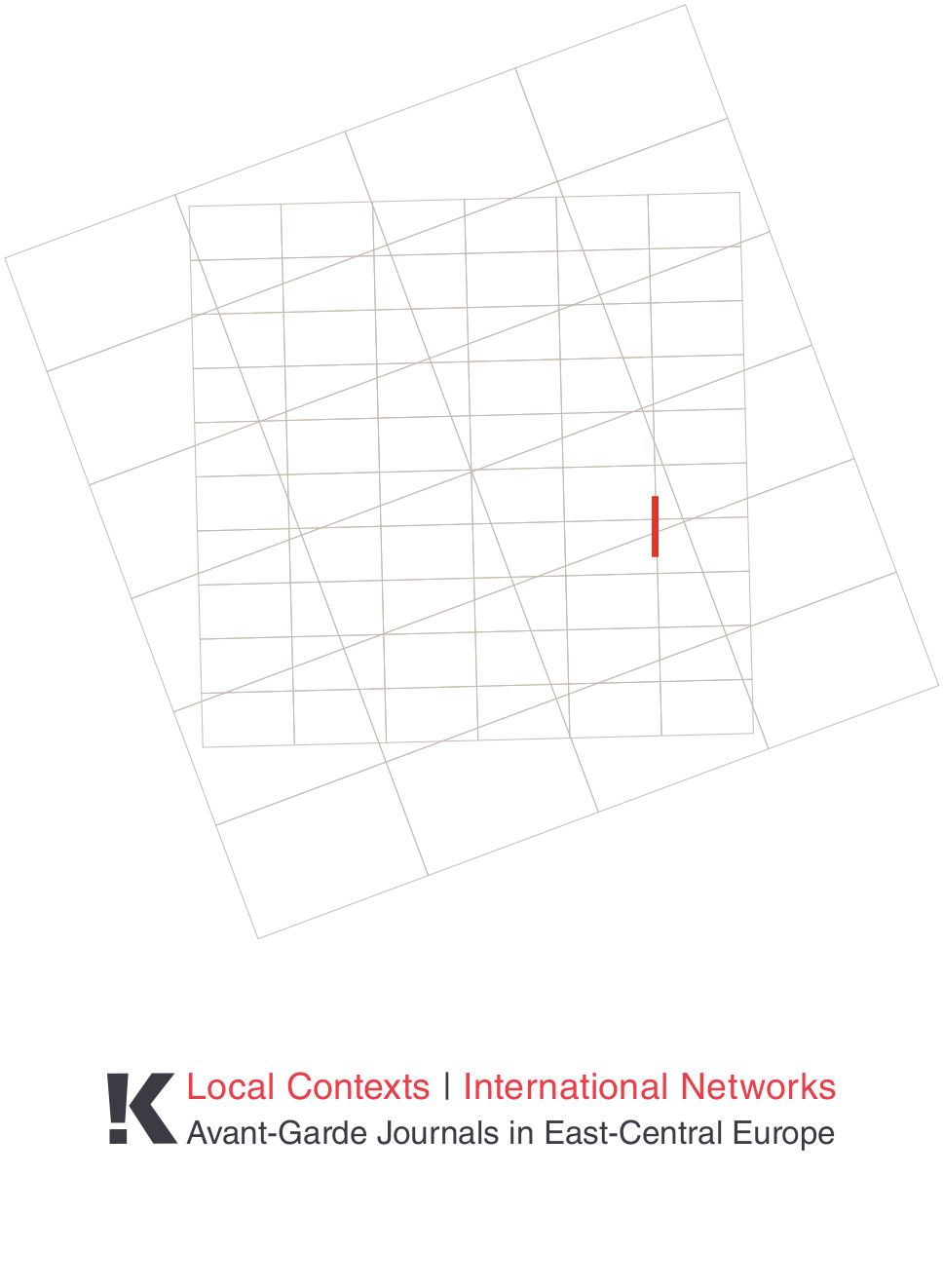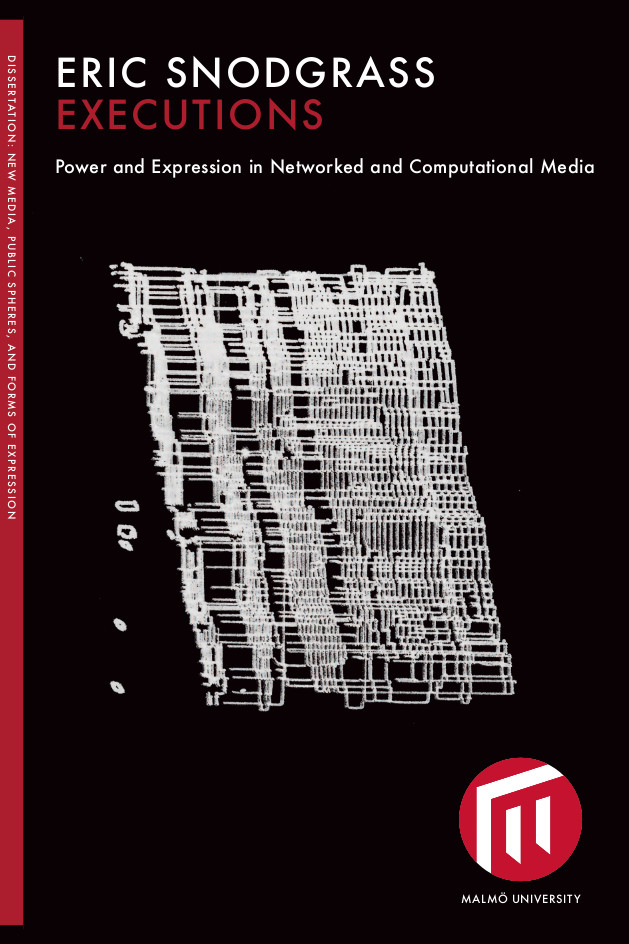Local Contexts / International Networks: Avant-Garde Journals in East-Central Europe (2018)
Filed under proceedings | Tags: · avant-garde, central europe, east-central europe, eastern europe, magazine, networks, publishing

“This volume presents papers based on the presentations held at the conference Local Contexts / International Networks – Avant-Garde Magazines in Central-Europe (1910-1935) held at the Kassák Museum in September 2015. The Museum is the only Hungarian museum devoted entirely to the avant-garde and its documents. It launched a programme centred around the presentation of archives and private collections, contemporary reflections on the avant-garde, and a reconsideration of Kassák’s oeuvre.
The avant-garde journal was arguably the most important medium of communication for progressive literature and visual arts in the region during World War I and the interwar period. The conference brought together researchers of different disciplines and approaches to analyse the multifaceted nature of the avant-garde journal. It aimed to draw attention to the tensions between national/local and international/cosmopolitan and offer possible answers to the question: how did the different cultural and historical characteristics affect the local avant-gardes of Central Europe?” (from Introduction)
With texts by Gábor Dobó and Merse Pál Szeredi, Eszter Balázs, Jindřich Toman, Gábor Dobó, Piotr Rypson, Michalina Kmiecik, Przemysław Strożek, Klára Prešnajderová, Sonia de Puineuf, Michał Wenderski, Dušan Barok, György C. Kálmán and András Kappanyos, and Irina Denischenko.
Edited by Gábor Dobó and Merse Pál Szeredi
Publisher Petőfi Literary Museum & Kassák Museum, Kassák Foundation, Budapest, 2018
The Avant-Garde and Its Journals series, 2
Creative Commons Licence Attribution-NonCommercial-ShareAlike 2.5 Generic License
ISBN 9789631259728
192 pages
Felix Stalder: The Digital Condition (2016–)
Filed under book | Tags: · algorithm, commons, culture, democracy, digital condition, digital culture, networks, politics, post-democracy, social media, technology, web

“Our daily lives, our culture and our politics are now shaped by the digital condition as large numbers of people involve themselves in contentious negotiations of meaning in ever more dimensions of life, from the trivial to the profound. They are making use of the capacities of complex communication infrastructures, currently dominated by social mass media such as Twitter and Facebook, on which they have come to depend.
Amidst a confusing plurality, Felix Stalder argues that are three key constituents of this condition: the use of existing cultural materials for one’s own production, the way in which new meaning is established as a collective endeavour, and the underlying role of algorithms and automated decision-making processes that reduce and give shape to massive volumes of data. These three characteristics define what Stalder calls ‘the digital condition’. Stalder also examines the profound political implications of this new culture. We stand at a crossroads between post-democracy and the commons, a concentration of power among the few or a genuine widening of participation, with the digital condition offering the potential for starkly different outcomes.
This ambitious and wide-ranging theory of our contemporary digital condition will be of great interest to students and scholars in media and communications, cultural studies, and social, political and cultural theory, as well as to a wider readership interested in the ways in which culture and politics are changing today.”
First published in German as Kultur der Digitalität, Suhrkamp Verlag, Berlin, 2016.
Translated by Valentine Pakis
Publisher Polity Press, Cambridge, UK, 2018
ISBN 9781509519590, 1509519599
xi+204 pages
Reviews (in German)
Comment (0)Eric Snodgrass: Executions: Power and Expression in Networked and Computational Media (2017)
Filed under thesis | Tags: · computing, execution, networks, software, software studies

“This book looks at questions of power and expression as they are composed in various ways within networked and computationally-informed situations of the present. Drawing from the term as it is originally invoked in practices of computing, the research puts forward execution as a central conceptual framework for its investigations. In a computer program, a program becomes executable when it is able to execute a set of procedures within a designated set of relations and affordances. Similarly, the concept of execution developed here looks at the ongoing negotiations of various formative relations and affordances (technical, cultural, material, political) in practices of execution, describing certain notable techniques applied towards the task of making things executable.
The examples looked at include several dominant media and technology practices of the present, as well as several alternative practices that point to other possible modes of execution. In doing so, the research highlights certain politically-orientated issues involved in questions of execution, working to further develop specific approaches aimed at describing, questioning and intervening into practices of execution as they occur in the world.”
Doctoral Dissertation in Media and Communication Studies
Publisher Malmö University, Malmö, 2017
New Media, Public Spheres and Forms of Expression series, 11
Creative Commons BY-NC 4.0 International
ISBN 9789171045065
332 pages
via fcr

